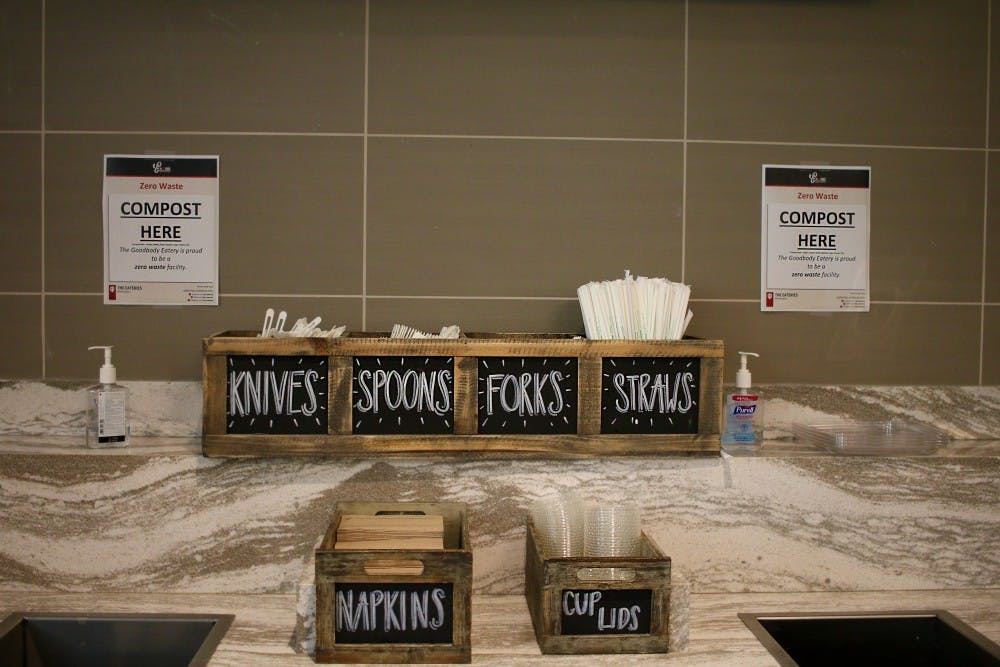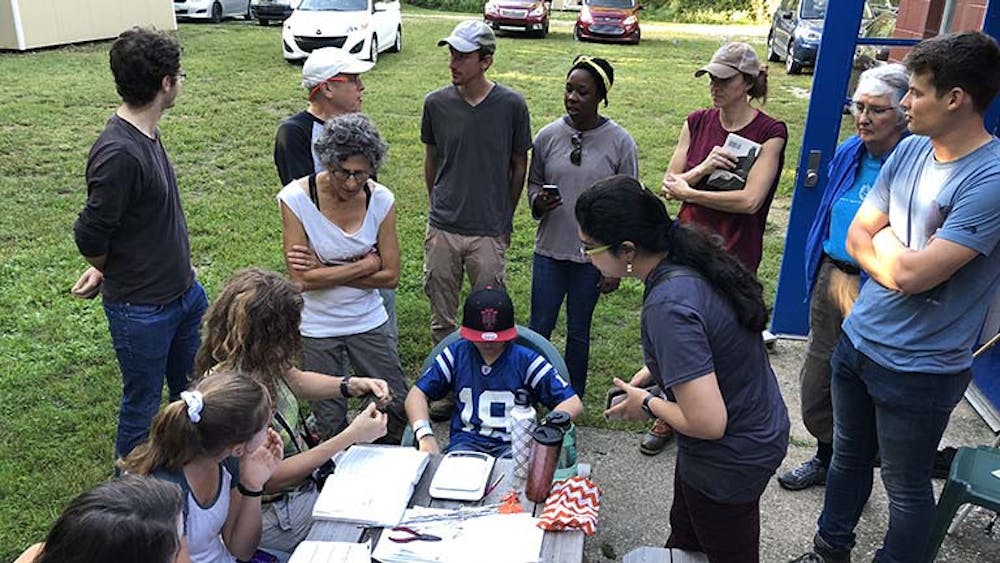Three campus dining facilities have made the switch to zero waste since April, and IU is looking to eliminate even more food waste on campus.
Residential Programs and Services converted both the Woodlands Restaurants at Forest Quad and Goodbody Eatery at Wells Quad to zero-waste facilities last school year. This year the Bookmarket Eatery at Wells Library, the Gresham Food Court at Foster Quad and the Wright Food Court have also been converted.
Zero waste means trash is not just thrown away and taken to a landfill. Instead, the waste and leftover food is recycled or repurposed.
All qualifying dining areas divert 96 percent of waste from being trashed, Executive Director of Dining Rahul Shrivastav said.
Students will likely recognize the conveyor belt that is inside Forest but may not know what its purpose is. RPS workers removed easily accessible trash cans after noticing that people did not properly sort their food.
Now, this conveyor belt takes waste to a dish room to be sorted and repurposed. A lot of what is thought to be trash can be more useful than imagined, Shrivastav said.
“There is a lot flavor in what we are throwing away,” Shrivastav said.
RPS has been working with dining hall chefs recently to ensure no food scraps are wasted when cooking, Shrivastav said. The stems and peels of foods are often the most protein-rich and nutritious part, but many people throw them away. Instead, chefs now use these proteins for a broth or stock soup.
Last school year, many administrative buildings and residence halls had multiple dumpster bins designated for trash, Shrivastav said. However, this year the University has many buildings with bins for compost and recycling, and just one trash bin.
RPS believes these changes will make IU a more inviting place for students or people looking to organize on-campus events, Shrivastav said.
“Having bins to be able recycle or compost is important for the campus,” Shrivastav said. “That is the kind of place that I would want to be.”
With more than 40,000 students, the University has a lot of people producing waste. Students also observe their peers who sometimes do not finish meals and waste food.
“These students produce an unbelievable amount of waste,” freshman Alberto Serrano said. “Switching dining halls to zero waste is a great move.”
Serrano said zero waste facilities make IU more appealing to some students.
“I like the direction that IU is moving in,” Serrano said. “It would be nice to see everyone reduce their carbon footprint.”
While certain setbacks have happened, such as heavy rain destroying waste in compost bins, have happened Shrivastav said RPS sees zero waste as a success so far.
“We’re learning as we go, but it’s much better than pumping plastic into the ocean,” Shrivastav said.






